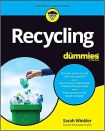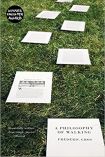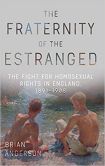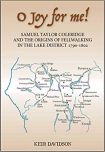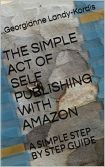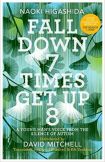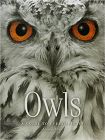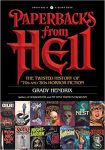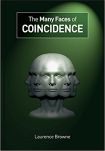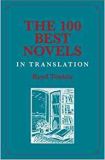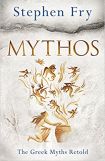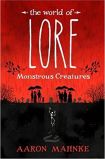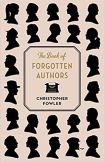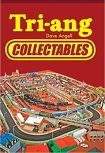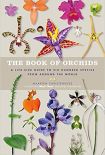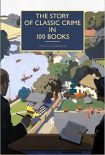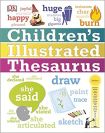Difference between revisions of "Newest Reference Reviews"
| (97 intermediate revisions by 3 users not shown) | |||
| Line 1: | Line 1: | ||
[[Category:New Reviews|Reference]] | [[Category:New Reviews|Reference]] | ||
| − | [[Category:Reference|*]] __NOTOC__ <!-- Remove --> | + | [[Category:Reference|*]]__NOTOC__ <!-- Remove --> |
| − | {{ | + | {{Frontpage |
| − | | | + | |isbn=1394159544 |
| − | |title= | + | |title=Recycling for Dummies |
| + | |author=Sarah Winkler | ||
|rating=5 | |rating=5 | ||
| − | |genre= | + | |genre=Lifestyle |
| − | |summary= | + | |summary=''Recycling one ton of plastic can save up to 16.3 barrels of oil.'' |
| − | + | ||
| + | ''Recycling one ton of paper can save 17 trees from being cut down.'' | ||
| + | |||
| + | If you send an apple core to landfill, it will take between 6 months and 2 years to decompose. A glass bottle will take up to 1 million years. | ||
| + | |||
| + | As a just-post-WWII baby, I faced a dilemma: reducing, reusing and recycling is part of my DNA. NEVER throw away anything that might ''possibly'' come in handy now or in the future. NEVER buy anything if you can cobble together something that would serve the purpose. Almost everything can be used one more time and any purchase must pass the test of 'Is this absolutely essential?' On the other hand, I suspected I was guilty of wishcycling: assuming that something must be recyclable (toothpaste tubes - I'm looking at you) and dropping it in the kerbside bin. Yes, I could go searching on the internet - and get conflicting advice - but what I needed was a recycling bible.s | ||
}} | }} | ||
| − | {{ | + | {{Frontpage |
| − | | | + | |isbn=1913750353 |
| − | |title= | + | |title=Britannica's Word of the Day |
| + | |author=Patrick Kelly, Renee Kelly and Sue Macy | ||
|rating=5 | |rating=5 | ||
| − | |genre= | + | |genre=Children's Non-Fiction |
| − | |summary= | + | |summary=''Britannica's Word of the Day'' has a sub-title: ''366 Elevating Utterances to Stretch Your Cranium and Tickle Your Humerus'' which probably tells you all that you need to know about this brilliant book. It starts on January 1st with ''Razzmatazz'', tells you how to pronounce it (''raz-muh-TAZ''), gives you a definition and then includes the word in a sentence so that you know how it should be used. You also get an engaging and frequently amusing illustration too. I don't think I've ever encountered a word which uses the letter Z four times before! |
| − | |||
}} | }} | ||
| − | {{ | + | {{Frontpage |
| − | | | + | |isbn=suppl_stafl |
| − | |title= | + | |title=Supply Chain 20/20: A Clear View on the Local Multiplier Effect for Book Lovers |
| − | |rating=4 | + | |author=Kim Staflund |
| + | |rating=4.5 | ||
|genre=Reference | |genre=Reference | ||
| − | |summary= | + | |summary=So, you've finished writing your book and you think the hard work is all done? You're convinced that all you need to do now is get it published and the money will start rolling in? |
| − | + | ||
| − | + | Wrong and wrong again. You presumably wrote the book because you wanted to - and you had a talent for delivering the written word. You knew your subject back to front. Now you're going to have to get to grips with the book supply chain, which even parts of the publishing industry believe to be wrong but it's too difficult to change and no one wants to be the first to try. Then, when you ''finally'' have a copy of the book in your hands, you're going to have to work out how to sell it - because it ''is'' going to be down to you. | |
| − | |||
| − | |||
| − | |||
| − | |||
| − | |||
| − | |||
| − | |||
}} | }} | ||
| − | {{ | + | {{Frontpage |
| − | |author= | + | |author=Frederic Gros |
| − | |title= | + | |title=A Philosophy of Walking |
|rating=5 | |rating=5 | ||
| − | |genre= | + | |genre= Politics and Society |
| − | |summary=I | + | |summary= I confess I picked this one up from the library in my pre-lockdown forage of random stuff. Now I have to go out an buy my own copy so that I can turn down the pages I have marked and return to its varying wisdom when I need to. Some books draw you in slowly. This one had me in the first two pages, wherein Gros explains why ''walking is not a sport''. |
| − | + | |isbn=1781688370 | |
| − | |||
| − | |||
| − | |||
| − | |||
| − | |||
| − | |||
| − | |||
| − | |||
| − | | | ||
}} | }} | ||
| − | + | {{Frontpage | |
| − | {{ | + | |isbn=1788037812 |
| − | | | + | |title=The Fraternity of the Estranged: The Fight for Homosexual Rights in England, 1891-1908 |
| − | |title= | + | |author=Brian Anderson |
|rating=5 | |rating=5 | ||
| − | |genre= | + | |genre=Biography |
| − | |summary= | + | |summary=Originally passed in 1885, the law that had made homosexual relations a crime remained in place for 82 years. But during this time, restrictions on same-sex relationships did not go unchallenged. Between 1891 and 1908, three books on the nature of homosexuality appeared. They were written by two homosexual men: Edward Carpenter and John Addington Symonds, as well as the heterosexual Havelock Ellis. Exploring the margins of society and studying homosexuality was common on the European Continent, but barely talked about in the UK, so the publications of these men were hugely significant – contributing to the scientific understanding of homosexuality, and beginning the struggle for recognition and equality, leading to the milestone legalisation of same-sex relationships in 1967. |
| − | |||
}} | }} | ||
| − | + | {{Frontpage | |
| − | {{ | + | |isbn=1912242052 |
| − | | | + | |title=O Joy for me! |
| − | |title= | + | |author=Keir Davidson |
| − | |rating= | + | |rating=3 |
| − | |genre= | + | |genre=Art |
| − | |summary= | + | |summary='' Oh Joy for me!'' gives Coleridge credit for being ''the first person to walk the mountains alone, not because he had to for work, as a miner, quarryman, shepherd or pack-horse driver, but because he wanted to for pleasure and adventure. His rapturous encounters with their natural beauty, and its literary consequences, changed our view of the world''. |
| − | |||
}} | }} | ||
| − | + | {{Frontpage | |
| − | {{ | + | |isbn=1072549271 |
| − | | | + | |title=The Simple Act of Self-Publishing With Amazon: A Simple Step by Step Guide |
| − | |title= | + | |author=Georgianne Landy-Kordis |
|rating=4.5 | |rating=4.5 | ||
| − | |genre= | + | |genre=Business and Finance |
| − | |summary= | + | |summary=I frequently meet authors who are struggling to be published by the traditional houses, but when I suggest self-publishing they explain that they don't have the big bucks required to go down that road with Author Solutions or Matador or their like. I then ask if they've considered Kindle and the answer is, inevitably, that they wouldn't know where to start. I can empathise with that. Despite having used a computer for about thirty years, running most of my life ''and'' a website online, I'm still nervous when it comes to starting something new. I like someone to hold my hand as I go through it for the first time. That was why I was very interested when ''The Simple Act of Self Publishing With Amazon'' came across my desk... |
| − | |||
}} | }} | ||
| − | + | {{Frontpage | |
| − | {{ | + | |isbn=Higashida_Fall |
| − | | | + | |title=Fall Down Seven Times, Get Up Eight: A Young Man's Voice From the Silence of Autism |
| − | |title= | + | |author=Naoki Higashida and David Mitchell |
| − | |rating= | + | |rating=5 |
| − | |genre= | + | |genre=Home and Family |
| − | |summary= | + | |summary=Naoki Higashida was only 13 years old when he wrote the international best-seller ''The Reason I Jump''. The book was popular because it gave a rare glimpse into the workings of the autistic mind, as told from the unique perspective of a teenager with non-verbal autism. Naoki communicates by using an alphabet grid, or by tracing letters on the palm of a transcriber. Despite this slow and laborious method of writing, he has published several books in his native Japan and manages to give public presentations to raise awareness of his condition. Fall Down 7 Times Get up 8 reintroduces us to Naoki as a young adult in his 20s and explains how his perspectives on life have changed since writing his first book. |
| − | |||
}} | }} | ||
| − | + | {{Frontpage | |
| − | {{ | + | |isbn=Jenkins_100 |
| − | | | + | |title=Britain's 100 Best Railway Stations |
| − | |title= | + | |author=Simon Jenkins |
| − | |rating= | + | |rating=5 |
| − | |genre= | + | |genre=Art |
| − | |summary= | + | |summary=In the mid-twentieth century, the railway was something which harked back to the Victorian age with trains being supplanted by cars and planes, but steam was being replaced by oil, even then and in the twenty-first-century oil is giving way to electricity. It's cleaner, more environmentally friendly and the stations which we'd all rushed through as quickly as possible, keen to escape their grime, were restored and became places to be admired, possibly even lingered in. Simon Jenkins has chosen his hundred best railway stations. |
| − | |||
| − | |||
| − | |||
| − | |||
| − | |||
| − | |||
| − | |||
| − | |||
| − | |||
| − | |||
}} | }} | ||
| − | + | {{Frontpage | |
| − | {{ | + | |isbn=Taylor_Owls |
| − | |title= | + | |title=Owls: A Guide to Every Species |
| − | |author= | + | |author=Marianne Taylor |
|rating=5 | |rating=5 | ||
|genre=Animals and Wildlife | |genre=Animals and Wildlife | ||
| − | |summary= | + | |summary=I feel like I am being watched. A huge pair of piercing orange eyes are staring right at me, locking me into their gaze. In contrast with the hardness of the deep-amber eyes, soft grey feathers fan out into the surrounding area, intricate, detailed and beautiful. An enigma; harsh and gentle at the same time, the owl is beckoning the reader to turn the pages and take a closer look inside... |
| − | |||
}} | }} | ||
| − | + | {{Frontpage | |
| − | {{ | + | |isbn=JVDK_ELO |
| − | | | + | |title=Electric Light Orchestra: Song by Song |
| − | |title= | + | |author=John Van der Kiste |
|rating=4.5 | |rating=4.5 | ||
| − | |genre= | + | |genre=Entertainment |
| − | |summary= | + | |summary=My memories of pop music in the early sixties revolve around guitars and drums, sometimes the piano with only occasional excursions into strings and brass. Pop music rarely stands still and it wasn't long before the basic instruments were seen as constraints and The Beatles, The Rolling Stones and The Beach Boys began to experiment, with other groups following where they led. Amongst these groups was The Move and their lead guitarist and songwriter, Roy Wood. Wood wanted to develop the group's sound by adding more instruments but was prevented from achieving what he wanted by cost limitations and because the rest of the group didn't really share his enthusiasm. |
| − | |||
}} | }} | ||
| − | + | {{Frontpage | |
| − | {{ | + | |isbn=Hendrix_PBHell |
| − | | | + | |title=Paperbacks from Hell: A History of Horror Fiction from the '70s and '80s |
| − | |title= | + | |author=Grady Hendrix |
|rating=4.5 | |rating=4.5 | ||
| − | |genre= | + | |genre=Horror |
| − | |summary= | + | |summary=Demonic possession, murderous babies, man-eating moths… for these books, no plot was too ludicrous, no cover art too appalling, no evil too despicable. Now horror author Grady Hendrix risks his soul and his sanity (not to mention the reader's!) to relate the true, untold story of a fascinating and often forgotten era in publishing. |
| − | |||
| − | |||
| − | + | Read the synapse-shattering story summaries!<br> | |
| − | + | See the horrific hand-painted cover imagery!<br> | |
| − | + | And learn the true-life tales of the writers, artists, and publishers who gleefully violated every literary law but one – never be boring. | |
| − | |||
| − | |||
| − | |||
| − | |||
}} | }} | ||
| − | + | {{Frontpage | |
| − | {{ | + | |isbn=Browne_Many |
| − | |title= | + | |title=The Many Faces of Coincidence |
| − | |author= | + | |author=Laurence Browne |
| − | |rating= | + | |rating=3.5 |
| − | |genre= | + | |genre=Popular Science |
| − | |summary= | + | |summary=Browne does not mislead with this choice of title; he does without a doubt explore the many faces of coincidence. |
| − | |||
}} | }} | ||
| − | + | {{Frontpage | |
| − | {{ | + | |isbn=1903385679 |
| − | | | + | |title=The 100 Best Novels in Translation |
| − | |title= | + | |author=Boyd Tonkin |
| − | |rating=5 | + | |rating=3.5 |
|genre=Reference | |genre=Reference | ||
| − | |summary= | + | |summary=Consider, if you will, translated fiction. Some say it's impossible – that if a book was so good in one tongue it could never survive being put into another. Samuel Beckett must have laboured over ever syllable and ''Breath'', but he could translate his own works, and other equally complex pieces can cross borders. It's a market that has actually doubled in sales volume between 2000 and 2016 (thanks, ''Millennium Trilogy''). Novels, in particular, in translation, are – as the introduction here so smartly puts it – ''a privileged means of passing border posts, a sort of universal passport issued by that Utopian state, the Republic of Letters''. We here at the 'Bag regularly try and give equal credit to the translator, without whom we wouldn't be reading what we have in our hands. But all that said, do we really need one of those list books about the subject? I got given a book the other year detailing 1001 places to go to before I die, and I might even then have missed out a zero. It would take as long as a fortnight's holiday to wade through, and even though this is not as long as your typical Bolano housebrick, it's not a short thing. Should it take our time? |
| − | |||
}} | }} | ||
| − | + | {{Frontpage | |
| − | {{ | + | |isbn=Fry_Mythos |
| − | | | + | |title=Mythos: A Retelling of the Myths of Ancient Greece |
| − | |title= | + | |author=Stephen Fry |
|rating=5 | |rating=5 | ||
|genre=Reference | |genre=Reference | ||
| − | |summary= | + | |summary=The Greek Myths are, arguably, the greatest stories ever told. So old and influential they cast a shadow over western tales and traditions, yet remain relatable and readable millennia later. Here comedian, actor, television presenter, actor and author Stephen Fry brings his considerable talent to these special stories and recreates them with a wit, warmth and humanity that brings them into the modern age whilst still giving the honour and respect that such ancient and influential stories deserve. |
| − | |||
}} | }} | ||
| − | + | {{Frontpage | |
| − | {{ | + | |isbn=Mahnke_Lore |
| − | |title= | + | |title=The World of Lore, Volume 1: Monstrous Creatures |
| − | |author= | + | |author=Aaron Mahnke |
| − | |rating=5 | + | |rating=4.5 |
|genre=Reference | |genre=Reference | ||
| − | |summary= | + | |summary=Every country, every town, every village has a folktale – a story passed down through generations that often focuses on the dark and unexplained. No matter how the modern world moves on, there's a still a part of everyone that is vulnerable to a good tale. From ghosts to werewolves, by way of wendigos and elves, author Aaron Mahnke delivers the reader legends from all over the world, whilst examining how they've become part of our collective imaginations, still striking fear into the hearts of many of us today. |
| − | |||
}} | }} | ||
| − | + | {{Frontpage | |
| − | {{ | + | |isbn=Fowler_Forgotten |
| − | |title= | + | |title=The Book of Forgotten Authors |
| − | |author= | + | |author=Christopher Fowler |
| − | |rating= | + | |rating=5 |
|genre=Reference | |genre=Reference | ||
| − | |summary= | + | |summary=''Absence doesn't make the heart grow fonder''. It makes people think you're dead. |
| − | |||
| − | |||
| − | + | There's truth in that statement, you know, but there's a conundrum when it's applied to authors. Shakespeare is dead: Dickens is dead, but we haven't buried what they've written: that lives on until... when? Is it until fashion decrees that they should be no more? Or is it, as in the case of some children's authors that they are on life support through licensing deals and astute marketing? Christopher Fowler has unearthed (exhumed?) ninety-nine authors who were once hugely popular, but whose works have disappeared, sometimes quite literally. | |
| − | |||
| − | |||
| − | |||
| − | |||
| − | |||
| − | |||
}} | }} | ||
| − | {{ | + | {{Frontpage |
| − | | | + | |isbn=Angell_Triang |
| − | |title= | + | |title=Tri-ang Collectables |
| − | + | |author=Dave Angell | |
| − | + | |rating=3.5 | |
| − | |||
| − | |||
| − | |||
| − | |||
| − | |||
| − | |author= | ||
| − | |rating= | ||
|genre=Reference | |genre=Reference | ||
| − | |summary= | + | |summary=A guide to the trains produced by the Tri-ang company from its inception until the company became Hornby. A very personal guide to the collecting of model trains. |
| − | |||
}} | }} | ||
| − | {{ | + | {{Frontpage |
| − | |title= | + | |isbn=Chase_Orchids |
| − | |author= | + | |title=The Book of Orchids: A life-size guide to six hundred species from around the world |
| − | |rating= | + | |author=Mark Chase, Maarten Christenhusz and Tom Mirenda |
| + | |rating=5 | ||
|genre=Reference | |genre=Reference | ||
| − | |summary= | + | |summary=One in seven flowering plants on earth is an orchid: there are 26,000 species in 749 genera. They flourish in remarkable habitats such as deserts and the Arctic circle, in fact, all areas but the most inhospitable. There's a wide range of colours, shapes and scents: they're dramatic, delicate and ingenious in the ways that they've developed not just to survive but to thrive. Tom Mirenda describes them as ''masters of manipulation'' and ''famous for lying and cheating their way to their many evolutionary successes'', yet his love of them is as obvious as his respect for the insight they give us into the processes which shaped our world. He hopes that understanding how that has come about will inspire us to conserve what we have. |
| − | |||
}} | }} | ||
| − | {{ | + | {{Frontpage |
| − | | | + | |isbn=Edwards_Story |
| − | |title=The | + | |title=The Story of Classic Crime in 100 Books (British Library Crime Classics) |
| − | |rating= | + | |author=Martin Edwards |
| + | |rating=5 | ||
|genre=Reference | |genre=Reference | ||
| − | |summary= | + | |summary=It's easy to be confused by the various 'ages' of crime writing: if you have an interest in the genre you'll almost certainly have heard of the Golden Age of Crime, generally acknowledged as being the period between the first and second world wars. 'Classic Crime' on the other hand extends the time frame at either end and covers books published in the first half of the twentieth century. Throughout my adult life, there's been just one genre of books which has fascinated me, and that's crime, so I could hardly resist the chance of reading ''The Story of Classic Crime in 100 Books'' particularly as the author, Martin Edwards is an accomplished author within the crime genre and an acknowledged expert on the subject. |
| − | |||
}} | }} | ||
| − | {{ | + | {{Frontpage |
| − | |title= | + | |isbn=DK_Childrens |
| − | |author= | + | |title=Children's Illustrated Thesaurus |
| − | |rating=5 | + | |author=DK |
| + | |rating=4.5 | ||
|genre=Reference | |genre=Reference | ||
| − | |summary= | + | |summary=One of the most valuable literary skills which children can learn is how to use reference books. As a child every question which I began with ''how do you spell...?'' would be answered with ''EXACTLY as it says in the dictionary''. This was fine, but the family's Collins Little Gem Dictionary didn't encourage exploration, not least because the font was small and difficult to read. Fortunately, those times have now changed and reference book for children are now much more inviting. Not every book comes with a set of instructions but it's worth studying the ''How to...'' section, not least because similar systems are used in other reference books. |
| − | |||
}} | }} | ||
| + | |||
| + | Move on to [[Newest Science Fiction Reviews]] | ||
Latest revision as of 10:30, 9 September 2023
Review ofRecycling for Dummies by Sarah WinklerRecycling one ton of plastic can save up to 16.3 barrels of oil. Recycling one ton of paper can save 17 trees from being cut down. If you send an apple core to landfill, it will take between 6 months and 2 years to decompose. A glass bottle will take up to 1 million years. As a just-post-WWII baby, I faced a dilemma: reducing, reusing and recycling is part of my DNA. NEVER throw away anything that might possibly come in handy now or in the future. NEVER buy anything if you can cobble together something that would serve the purpose. Almost everything can be used one more time and any purchase must pass the test of 'Is this absolutely essential?' On the other hand, I suspected I was guilty of wishcycling: assuming that something must be recyclable (toothpaste tubes - I'm looking at you) and dropping it in the kerbside bin. Yes, I could go searching on the internet - and get conflicting advice - but what I needed was a recycling bible.s Full Review |
Review ofBritannica's Word of the Day by Patrick Kelly, Renee Kelly and Sue MacyBritannica's Word of the Day has a sub-title: 366 Elevating Utterances to Stretch Your Cranium and Tickle Your Humerus which probably tells you all that you need to know about this brilliant book. It starts on January 1st with Razzmatazz, tells you how to pronounce it (raz-muh-TAZ), gives you a definition and then includes the word in a sentence so that you know how it should be used. You also get an engaging and frequently amusing illustration too. I don't think I've ever encountered a word which uses the letter Z four times before! Full Review |
Review ofSupply Chain 20/20: A Clear View on the Local Multiplier Effect for Book Lovers by Kim StaflundSo, you've finished writing your book and you think the hard work is all done? You're convinced that all you need to do now is get it published and the money will start rolling in? Wrong and wrong again. You presumably wrote the book because you wanted to - and you had a talent for delivering the written word. You knew your subject back to front. Now you're going to have to get to grips with the book supply chain, which even parts of the publishing industry believe to be wrong but it's too difficult to change and no one wants to be the first to try. Then, when you finally have a copy of the book in your hands, you're going to have to work out how to sell it - because it is going to be down to you. Full Review |
Review ofA Philosophy of Walking by Frederic GrosI confess I picked this one up from the library in my pre-lockdown forage of random stuff. Now I have to go out an buy my own copy so that I can turn down the pages I have marked and return to its varying wisdom when I need to. Some books draw you in slowly. This one had me in the first two pages, wherein Gros explains why walking is not a sport. Full Review |
Review ofThe Fraternity of the Estranged: The Fight for Homosexual Rights in England, 1891-1908 by Brian AndersonOriginally passed in 1885, the law that had made homosexual relations a crime remained in place for 82 years. But during this time, restrictions on same-sex relationships did not go unchallenged. Between 1891 and 1908, three books on the nature of homosexuality appeared. They were written by two homosexual men: Edward Carpenter and John Addington Symonds, as well as the heterosexual Havelock Ellis. Exploring the margins of society and studying homosexuality was common on the European Continent, but barely talked about in the UK, so the publications of these men were hugely significant – contributing to the scientific understanding of homosexuality, and beginning the struggle for recognition and equality, leading to the milestone legalisation of same-sex relationships in 1967. Full Review |
Review ofO Joy for me! by Keir DavidsonOh Joy for me! gives Coleridge credit for being the first person to walk the mountains alone, not because he had to for work, as a miner, quarryman, shepherd or pack-horse driver, but because he wanted to for pleasure and adventure. His rapturous encounters with their natural beauty, and its literary consequences, changed our view of the world. Full Review |
Review ofThe Simple Act of Self-Publishing With Amazon: A Simple Step by Step Guide by Georgianne Landy-KordisI frequently meet authors who are struggling to be published by the traditional houses, but when I suggest self-publishing they explain that they don't have the big bucks required to go down that road with Author Solutions or Matador or their like. I then ask if they've considered Kindle and the answer is, inevitably, that they wouldn't know where to start. I can empathise with that. Despite having used a computer for about thirty years, running most of my life and a website online, I'm still nervous when it comes to starting something new. I like someone to hold my hand as I go through it for the first time. That was why I was very interested when The Simple Act of Self Publishing With Amazon came across my desk... Full Review |
Review ofFall Down Seven Times, Get Up Eight: A Young Man's Voice From the Silence of Autism by Naoki Higashida and David MitchellNaoki Higashida was only 13 years old when he wrote the international best-seller The Reason I Jump. The book was popular because it gave a rare glimpse into the workings of the autistic mind, as told from the unique perspective of a teenager with non-verbal autism. Naoki communicates by using an alphabet grid, or by tracing letters on the palm of a transcriber. Despite this slow and laborious method of writing, he has published several books in his native Japan and manages to give public presentations to raise awareness of his condition. Fall Down 7 Times Get up 8 reintroduces us to Naoki as a young adult in his 20s and explains how his perspectives on life have changed since writing his first book. Full Review |
Review ofBritain's 100 Best Railway Stations by Simon JenkinsIn the mid-twentieth century, the railway was something which harked back to the Victorian age with trains being supplanted by cars and planes, but steam was being replaced by oil, even then and in the twenty-first-century oil is giving way to electricity. It's cleaner, more environmentally friendly and the stations which we'd all rushed through as quickly as possible, keen to escape their grime, were restored and became places to be admired, possibly even lingered in. Simon Jenkins has chosen his hundred best railway stations. Full Review |
Review ofOwls: A Guide to Every Species by Marianne TaylorI feel like I am being watched. A huge pair of piercing orange eyes are staring right at me, locking me into their gaze. In contrast with the hardness of the deep-amber eyes, soft grey feathers fan out into the surrounding area, intricate, detailed and beautiful. An enigma; harsh and gentle at the same time, the owl is beckoning the reader to turn the pages and take a closer look inside... Full Review |
Review ofElectric Light Orchestra: Song by Song by John Van der KisteMy memories of pop music in the early sixties revolve around guitars and drums, sometimes the piano with only occasional excursions into strings and brass. Pop music rarely stands still and it wasn't long before the basic instruments were seen as constraints and The Beatles, The Rolling Stones and The Beach Boys began to experiment, with other groups following where they led. Amongst these groups was The Move and their lead guitarist and songwriter, Roy Wood. Wood wanted to develop the group's sound by adding more instruments but was prevented from achieving what he wanted by cost limitations and because the rest of the group didn't really share his enthusiasm. Full Review |
Review ofPaperbacks from Hell: A History of Horror Fiction from the '70s and '80s by Grady HendrixDemonic possession, murderous babies, man-eating moths… for these books, no plot was too ludicrous, no cover art too appalling, no evil too despicable. Now horror author Grady Hendrix risks his soul and his sanity (not to mention the reader's!) to relate the true, untold story of a fascinating and often forgotten era in publishing. Read the synapse-shattering story summaries! |
Review ofThe Many Faces of Coincidence by Laurence BrowneBrowne does not mislead with this choice of title; he does without a doubt explore the many faces of coincidence. Full Review |
Review ofThe 100 Best Novels in Translation by Boyd TonkinConsider, if you will, translated fiction. Some say it's impossible – that if a book was so good in one tongue it could never survive being put into another. Samuel Beckett must have laboured over ever syllable and Breath, but he could translate his own works, and other equally complex pieces can cross borders. It's a market that has actually doubled in sales volume between 2000 and 2016 (thanks, Millennium Trilogy). Novels, in particular, in translation, are – as the introduction here so smartly puts it – a privileged means of passing border posts, a sort of universal passport issued by that Utopian state, the Republic of Letters. We here at the 'Bag regularly try and give equal credit to the translator, without whom we wouldn't be reading what we have in our hands. But all that said, do we really need one of those list books about the subject? I got given a book the other year detailing 1001 places to go to before I die, and I might even then have missed out a zero. It would take as long as a fortnight's holiday to wade through, and even though this is not as long as your typical Bolano housebrick, it's not a short thing. Should it take our time? Full Review |
Review ofMythos: A Retelling of the Myths of Ancient Greece by Stephen FryThe Greek Myths are, arguably, the greatest stories ever told. So old and influential they cast a shadow over western tales and traditions, yet remain relatable and readable millennia later. Here comedian, actor, television presenter, actor and author Stephen Fry brings his considerable talent to these special stories and recreates them with a wit, warmth and humanity that brings them into the modern age whilst still giving the honour and respect that such ancient and influential stories deserve. Full Review |
Review ofThe World of Lore, Volume 1: Monstrous Creatures by Aaron MahnkeEvery country, every town, every village has a folktale – a story passed down through generations that often focuses on the dark and unexplained. No matter how the modern world moves on, there's a still a part of everyone that is vulnerable to a good tale. From ghosts to werewolves, by way of wendigos and elves, author Aaron Mahnke delivers the reader legends from all over the world, whilst examining how they've become part of our collective imaginations, still striking fear into the hearts of many of us today. Full Review |
Review ofThe Book of Forgotten Authors by Christopher FowlerAbsence doesn't make the heart grow fonder. It makes people think you're dead. There's truth in that statement, you know, but there's a conundrum when it's applied to authors. Shakespeare is dead: Dickens is dead, but we haven't buried what they've written: that lives on until... when? Is it until fashion decrees that they should be no more? Or is it, as in the case of some children's authors that they are on life support through licensing deals and astute marketing? Christopher Fowler has unearthed (exhumed?) ninety-nine authors who were once hugely popular, but whose works have disappeared, sometimes quite literally. Full Review |
Review ofTri-ang Collectables by Dave AngellA guide to the trains produced by the Tri-ang company from its inception until the company became Hornby. A very personal guide to the collecting of model trains. Full Review |
Review ofThe Book of Orchids: A life-size guide to six hundred species from around the world by Mark Chase, Maarten Christenhusz and Tom MirendaOne in seven flowering plants on earth is an orchid: there are 26,000 species in 749 genera. They flourish in remarkable habitats such as deserts and the Arctic circle, in fact, all areas but the most inhospitable. There's a wide range of colours, shapes and scents: they're dramatic, delicate and ingenious in the ways that they've developed not just to survive but to thrive. Tom Mirenda describes them as masters of manipulation and famous for lying and cheating their way to their many evolutionary successes, yet his love of them is as obvious as his respect for the insight they give us into the processes which shaped our world. He hopes that understanding how that has come about will inspire us to conserve what we have. Full Review |
Review ofThe Story of Classic Crime in 100 Books (British Library Crime Classics) by Martin EdwardsIt's easy to be confused by the various 'ages' of crime writing: if you have an interest in the genre you'll almost certainly have heard of the Golden Age of Crime, generally acknowledged as being the period between the first and second world wars. 'Classic Crime' on the other hand extends the time frame at either end and covers books published in the first half of the twentieth century. Throughout my adult life, there's been just one genre of books which has fascinated me, and that's crime, so I could hardly resist the chance of reading The Story of Classic Crime in 100 Books particularly as the author, Martin Edwards is an accomplished author within the crime genre and an acknowledged expert on the subject. Full Review |
Review ofChildren's Illustrated Thesaurus by DKOne of the most valuable literary skills which children can learn is how to use reference books. As a child every question which I began with how do you spell...? would be answered with EXACTLY as it says in the dictionary. This was fine, but the family's Collins Little Gem Dictionary didn't encourage exploration, not least because the font was small and difficult to read. Fortunately, those times have now changed and reference book for children are now much more inviting. Not every book comes with a set of instructions but it's worth studying the How to... section, not least because similar systems are used in other reference books. Full Review |
Move on to Newest Science Fiction Reviews
